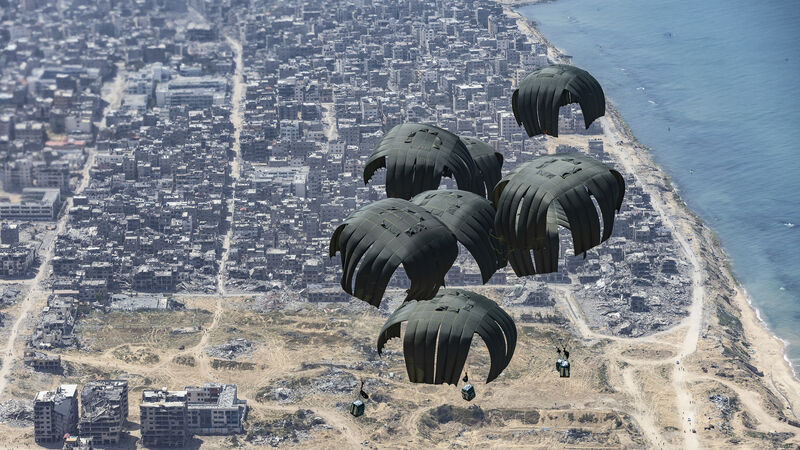Letters to the Editor: The Irish Government has shown cowardice in the face of Gaza crisis

Humanitarian aid being air dropped over Gaza.
Well said Colin Sheridan, whose powerful and empathetic front-page comment piece (Irish Examiner, April 5) is possibly the best critique I have read by an Irish journalist of the Irish Government’s cowardly inaction on the Gaza catastrophe.
It is incredible that this savagery has now gone on for six months, with no significant action taken by the ‘international community’. Sanctions were enacted rapidly by the US and EU states when Russia invaded Ukraine, and Taoiseach Leo Varadkar and Tánaiste Micheál Martin were to the fore in pushing for these measures.











